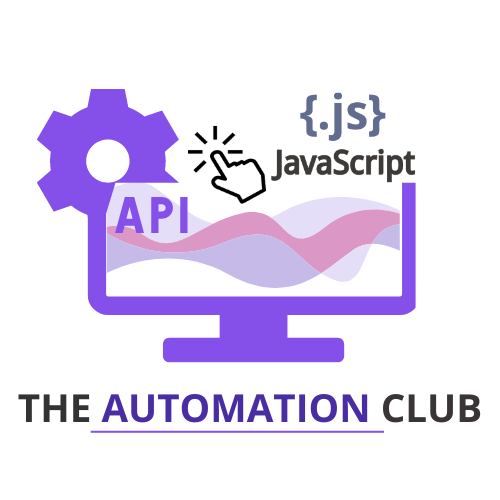Enhancing Content Marketing Through AI Innovations
Introduction
In the ever-evolving landscape of digital marketing, the ability to create and distribute content efficiently across multiple platforms is crucial for success. Artificial Intelligence (AI) is fundamentally changing how businesses approach content creation and distribution, enabling them to optimize their strategies and engage audiences more effectively. This article delves into the latest advancements in AI technologies and their significant impact on content marketing.
The Impact of AI on Content Marketing
AI is transforming the content marketing landscape by automating routine tasks and providing actionable insights. Here are several key areas where AI can enhance your content initiatives:
- Automated Content Creation: AI tools can generate high-quality written content quickly, allowing marketers to focus on strategic planning and creative development.
- Smart Content Curation: Advanced algorithms analyze user behavior and preferences, helping marketers curate relevant content that resonates with their target audience.
- Performance Analytics: AI-driven analytics tools track engagement metrics, offering insights that inform future content strategies and improve overall effectiveness.
Leading AI Tools for Content Management
Here are some of the most effective AI tools that can streamline your content management across various platforms:
-
Buffer
Buffer is a social media management platform that utilizes AI to optimize posting schedules and analyze engagement across different channels.

-
Hootsuite
Hootsuite offers comprehensive social media management features, including AI-driven insights that help assess content performance and audience engagement.

-
Later
Later is a visual content planning tool that leverages AI to suggest optimal posting times and analyze audience interactions for better engagement.

Benefits of Integrating AI into Your Content Strategy
Incorporating AI into your content strategy offers numerous advantages:
- Increased Efficiency: Automating content creation and scheduling allows teams to save time and reduce operational costs.
- Enhanced Audience Engagement: AI tools provide insights that help tailor content to audience preferences, leading to higher interaction rates.
- Data-Driven Decision Making: AI analytics enable marketers to make informed decisions based on real-time data, optimizing content strategies effectively.
Best Practices for Utilizing AI in Content Marketing
To fully harness the power of AI in your content strategy, consider these best practices:
- Establish clear objectives for your AI initiatives to guide your strategy.
- Regularly review engagement metrics to refine your content approach and improve performance.
- Combine AI-generated insights with human creativity to produce compelling and authentic content.
Key Considerations for Implementing AI in Content Marketing
When integrating AI into your content marketing strategy, consider the following factors to ensure successful implementation:
- Data Quality: Ensure that the data used to train AI models is accurate and relevant. Poor data quality can lead to ineffective content recommendations.
- Integration with Existing Tools: Choose AI tools that can seamlessly integrate with your current content management systems and marketing platforms.
- Continuous Learning: AI systems should be regularly updated and trained with new data to adapt to changing audience preferences and market trends.
Pros and Cons of AI in Content Marketing
| Pros | Cons |
|---|---|
| Increased efficiency in content creation and distribution. | Initial setup costs and learning curve for new tools. |
| Enhanced personalization and audience targeting. | Potential over-reliance on automation, reducing human creativity. |
| Data-driven insights for informed decision-making. | Privacy concerns regarding data collection and usage. |
| Ability to analyze large volumes of data quickly. | Quality of AI-generated content may vary. |
Real-World Case Studies
Here are a few examples of companies successfully leveraging AI in their content marketing strategies:
-
Netflix
Netflix uses AI algorithms to analyze viewer preferences and behavior, allowing them to recommend personalized content to users, which significantly enhances user engagement and retention.
-
HubSpot
HubSpot employs AI to optimize email marketing campaigns by analyzing user interactions and suggesting the best times to send emails, resulting in higher open and click-through rates.
-
BuzzFeed
BuzzFeed utilizes AI to analyze trending topics and audience interests, enabling them to create content that resonates with their readers and drives traffic to their site.
Future Trends in AI and Content Marketing
The future of AI in content marketing is promising, with several trends expected to shape the industry:
- Increased Use of Natural Language Processing (NLP): As NLP technology advances, AI will be able to create more human-like content, improving the quality of automated writing.
- Greater Personalization: AI will enable even more personalized content experiences, tailoring messages to individual user preferences and behaviors.
- AI-Driven Visual Content Creation: Tools that generate images and videos using AI will become more prevalent, allowing marketers to create engaging visual content quickly.
Conclusion
Integrating AI into your content marketing strategy is no longer optional; it is essential for staying competitive in the digital landscape. By leveraging AI tools and technologies, businesses can enhance their content creation processes, engage their audiences more effectively, and make data-driven decisions that lead to better outcomes. As AI continues to evolve, those who embrace these innovations will be well-positioned to thrive in the future of content marketing.
